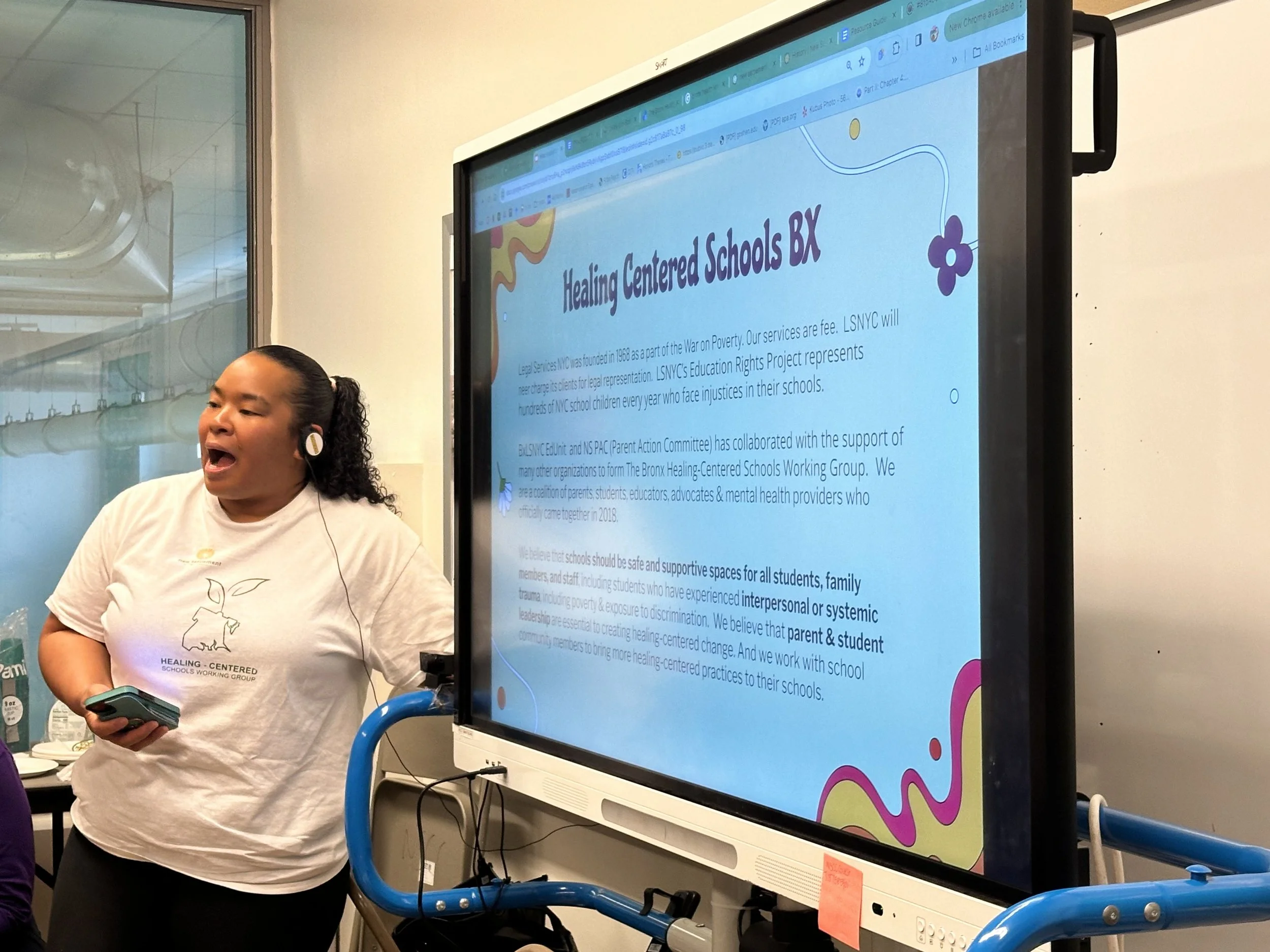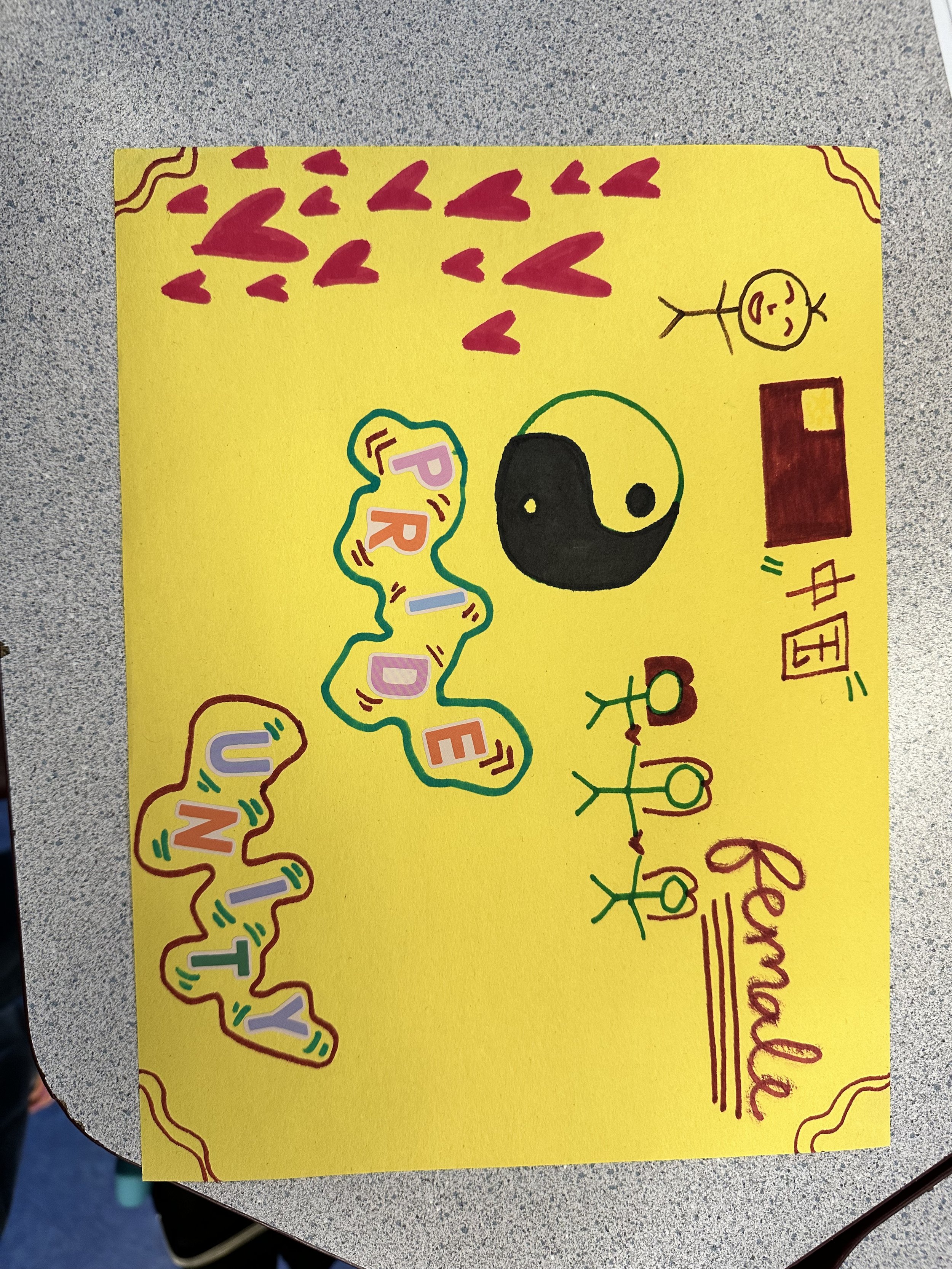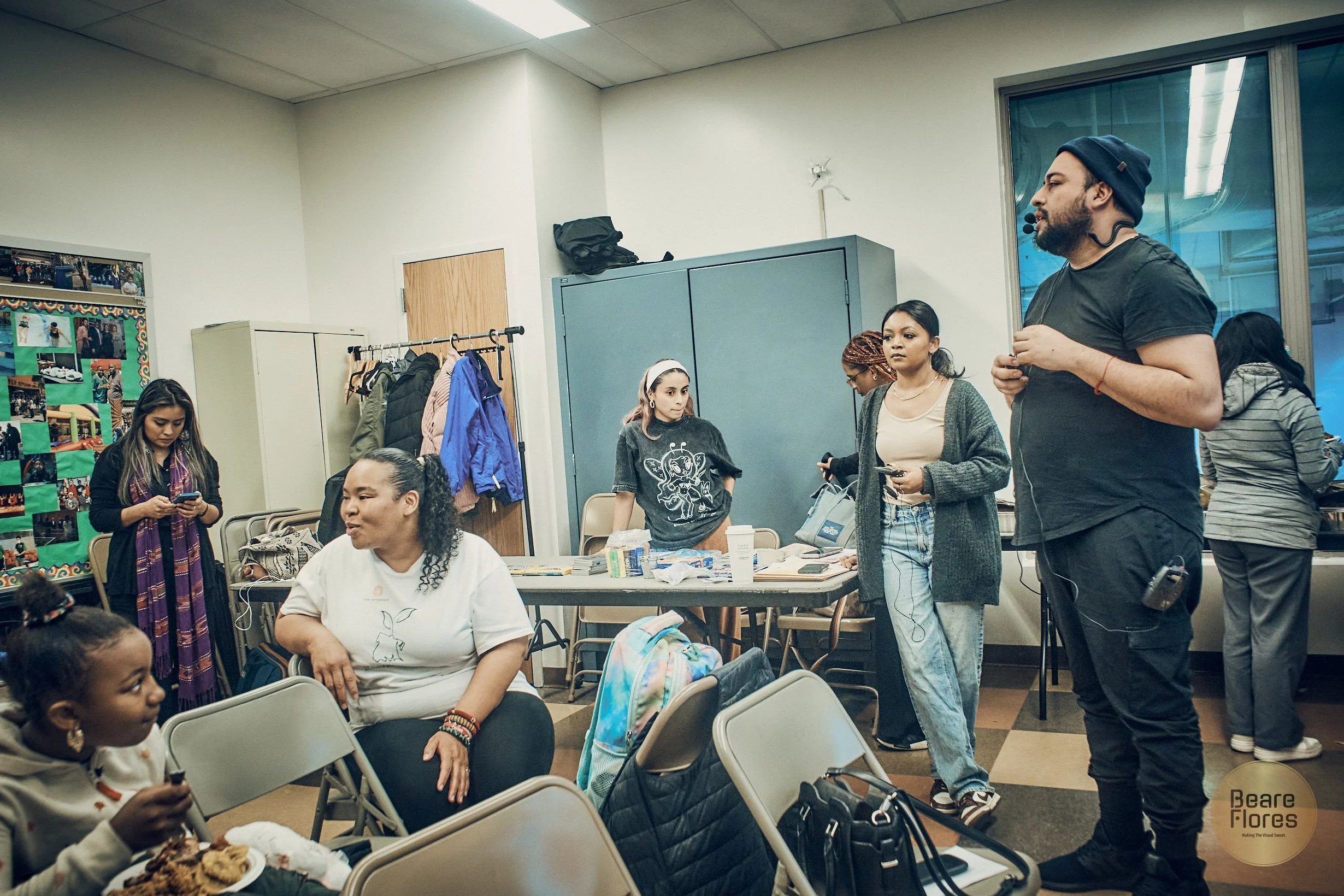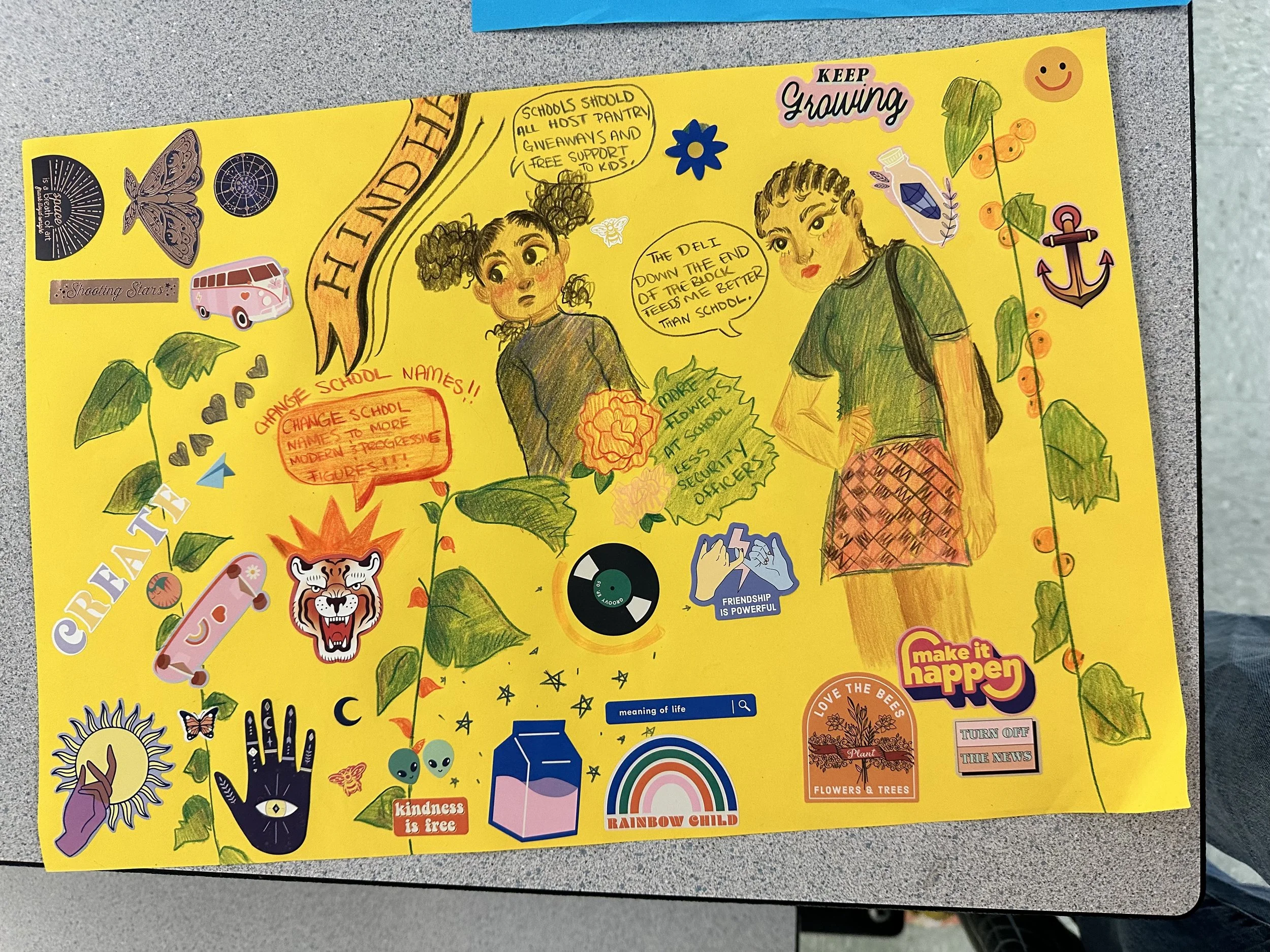Research
As the AEJC came together in 2022, we wanted to learn with and from our NYC neighbors, fellow youth, parents, educators, and community in how they understand abolition, the fight for liberatory education, and building abolition for liberatory education. We began a Participatory Action Research project where we began with question that guided our research process
What does abolition mean for education justice in New York City?
What does it look like to organize for education that is liberatory, centers the care, power, and self-determination of NYC Black, Brown, and poor youth and families of color–and not punitive and harmful?
How can we build Abolitionist Learning Futures?
Our Abolition and Education Justice Participatory Action Research (PAR) project brought together NYC Black, Latine, and immigrant youth, parents, and community organizers to learn, talk and share about abolition as it relates to our schools and education. Through 2023-2024, we held 4 community conversations across New York City (Harlem, Brooklyn, Queens, and Brooklyn) bringing community members and organizers together for a teach-in on abolition, focus group conversations on abolition and education justice, and freedom dreaming through art! Through our analysis of the art and focus group conversations, we learned how:
Many NYC Youth and families expressed concern about how their basic needs are not met (food, housing, social spaces, safety in neighborhoods) and a lack of resources around education, childcare, afterschool and community based spaces, and programs.
True safety in our schools and neighborhoods is collective and comes from meeting our needs- housing, food, healing, connection, and NOT policing.
Community members shared about the fears and dangers around cooptation and misrepresentation of abolition in popular media. Abolition is not reform. It’s about dismantling racist capitalist systems of carceral violence and creating a new system rooted in care, people power, and freedom.
Repeatedly, in our conversations we shared and spoke about Black history. Learning, sharing the knowledge of, and understanding Black history is central to building an abolitionist education. Learning our histories of resistance helps us dream new futures and organize for freedom.
Liberatory education happens everywhere. Folks shared how education happens all over the community– in homes, community centers, kitchens, gardens, organizations and protests.
Self-determination and building power is essential. Youth, parents, and educators shared wanting to control the decisions that shape their education and communities.
“We're in the community to determine our own destiny, and create our own system that benefits us, you know, and I think that we can't be afraid to have the power and work towards building power within our communities to do that.”
- Brooklyn Community Conversation Participant, 2024
“Abolition is about experimentation..it’s trying, failing, and trying again. It’s refusing to let the system be the only option.”
- Harlem Community Conversation Participant, 2023
“I feel like all the schools that I know, the ones that like have the most police feel the least safe, whereas, like, the schools that don't have metal detectors don't have police in it seem to, you know, not have as much problems with those things. You know, it's like we treat people a certain way it creates a certain environment that becomes self fulfilling”
- Bronx Community Conversation Participant, 2024
From NYC community members and organizers of color, we learn that a liberatory education in which Black, Brown and working class to New York youth and families requires holistic resources. An abolitionist perspective of education understands that the purposeful, and lack of resources in Black, brown, and poor communities of color threatens liberatory education. Our education is tied to all of our social experiences and the resources necessary to live and thrive. We also learn that in our fight for liberatory education, we need to build abolitionist thinking and organizing in response to ALL of the systems that seek to control, surveil, and punish us – including schools, police, prisons, family policing system (child welfare), privatized housing, healthcare industry, privatization, workplaces, and more. This research project connects us to the many thoughts, experiences and organizing around abolition of Black, brown, and working class new yorkers of color. We plan to continue to expand our conversations and connect with people.
Research supported by:











